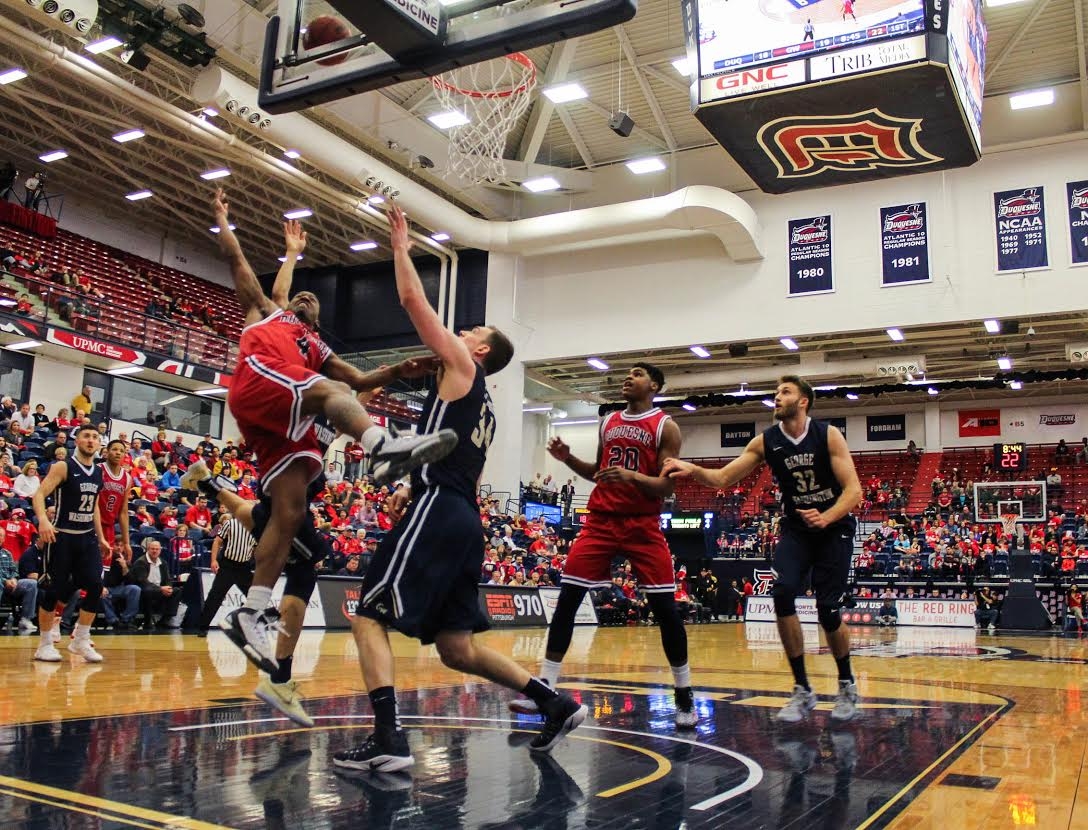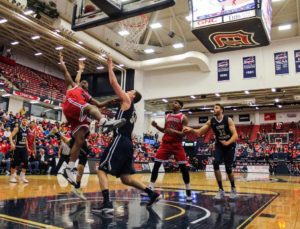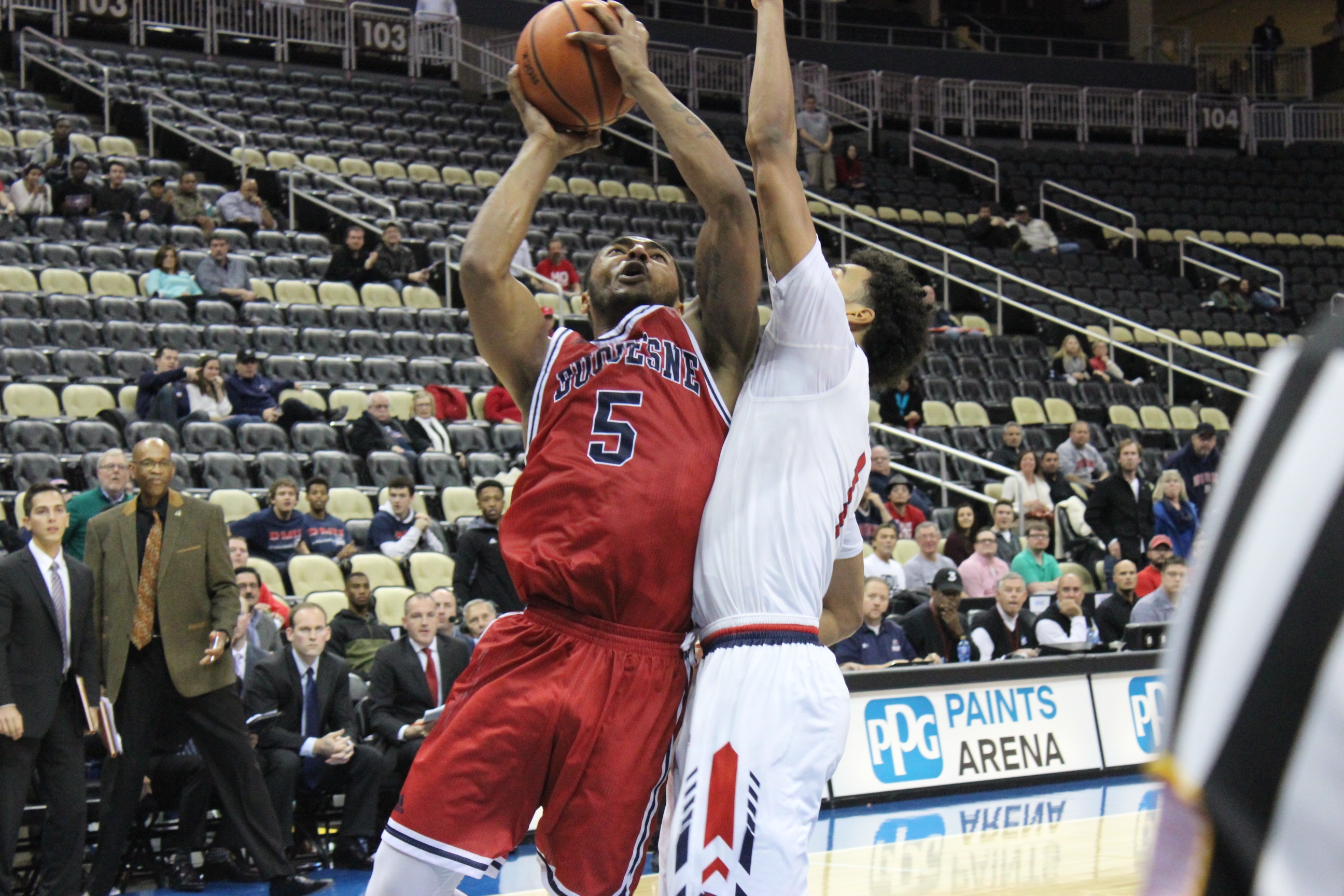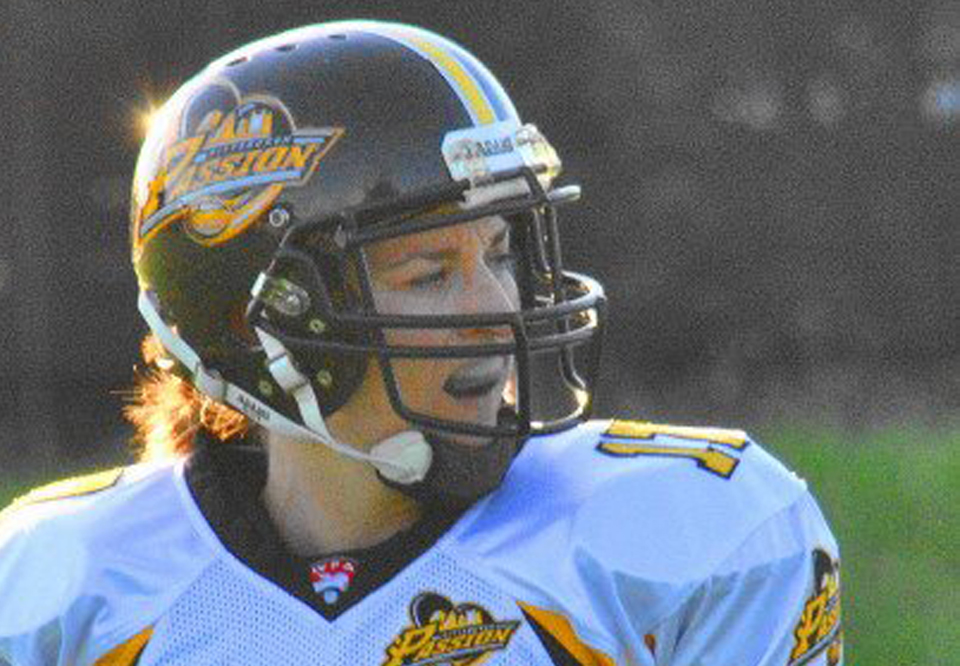

Adam Lindner | Sports Editor
11/09/2017
Rarely will an amateur player claim to modeling their game after a player as low key, mellow and fundamentally-sound as former NBA guard Andre Miller, who boasts a career 2.73 assist-to-turnover ratio while managing to shoot only .217 from 3-point range.
Even more unique are players that are able to offer decently accurate professional comparisons for themselves.
Graduate student Rene Castro-Caneddy, a third-year guard for Duquesne’s men’s basketball team, offered Miller as his NBA alter ego, saying, “He’s not, you know, that athletic, but he can just get to [any spot that he wants to get to at any given time].”
While Castro-Caneddy may not be quite every bit the prolific passer that Miller was during his career — Miller currently ranks ninth all-time in NBA career assists with 8,524 — Castro-Caneddy’s play does resemble that of a guard of Miller’s limitations: shorter, average athleticism and a sometimes sporadic jump shot.
While Castro-Caneddy will almost undoubtedly not have as successful a career as Miller enjoyed, he does have the opportunity to help ease Keith Dambrot’s transition from Akron to Duquesne, and perhaps more importantly, the chance to end his collegiate career on a positive note.
A Boston native, Castro-Caneddy originally attended Butler in 2013 with the intention to play for then-head coach Brad Stevens, who led Butler to back-to-back Final Fours in 2010 and 2011.
However, before Castro-Caneddy had the opportunity to suit up for the Bulldogs, Stevens informed the team that he had decided to accept an offer to become the head coach with the NBA’s Boston Celtics.
“Like, the first two or three weeks I got [to Butler], we all had a meeting and he informed us he was going to the Boston Celtics,” Castro-Caneddy said.
“[I’d] say that it affected me just because I came all the way to Indiana, and that’s a long way from home, to play for … the legendary coach Brad Stevens,” Castro-Caneddy said.
After deciding to leave Butler after one season, Castro-Caneddy chose Duquesne as his next destination. Castro-Caneddy had a standing connection with the school, being that he liked former Duquesne Head Coach Jim Ferry, who originally recruited him out of Worcester (Ma.) Academy, which is the same prep school that Duquesne 1,500-point scorers Bill Clark (2008-11) and Aaron Jackson (2006-09) hailed from.
Prior to this season, Castro-Caneddy was known as Rene Castro, but chose to adopt his full surname ahead of his final collegiate season in order to celebrate both his parents, as well as his Honduran heritage.
Both of Castro-Caneddy’s parents immigrated from Honduras, and, in fact, Castro-Caneddy’s uncle was one of Rene’s biggest influences in choosing to play basketball instead of soccer in the first place.
Castro-Caneddy described his family as a “great support system,” which contributed to his desire to honor both of his parents’ heritages in his last name.
“He was probably one of the best basketball players in Honduras,” Castro-Caneddy said of his mom’s brother, who was a prominent basketball player in Honduras. “He kind of inspired me to play basketball [as well].”
After averaging 7.1 points per game last season in 29 contests, Castro-Caneddy considered capitalizing on the opportunity to transfer this past offseason as a graduate student, which would enable him to play immediately at a new institution closer to home.
However, Dambrot’s staff was able to convince Castro-Caneddy that it would be good for him to return for a final season on the Bluff, being that a large quantity of minutes will be available this year for Castro-Caneddy to fulfill.
As for how he sees his final college season playing out, Castro-Caneddy is focused strictly on winning, being that he has yet to really win at the collegiate level like he hoped he would initially.
“Throughout my career, I’ve had hardships just because of the fact that I haven’t had the kind of career I thought I would have,” Castro-Caneddy said. “So, this is my year to show people [all that I’m capable of doing.]”
Dambrot agrees, saying in a press release, “Rene has done a really good job of getting extra time in the gym. It’s almost like he’s got a new lease on life — to once and for all show that he can play.”
Ahead of his first season at the helm of the men’s program, Dambrot might be the only person that wants to see Castro-Caneddy succeed more than Castro-Caneddy does himself.



